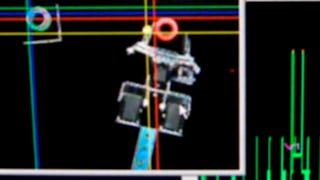Filter by
SubjectRequired
LanguageRequired
The language used throughout the course, in both instruction and assessments.
Learning ProductRequired
LevelRequired
DurationRequired
SkillsRequired
SubtitlesRequired
EducatorRequired
Explore the Physical Chemistry Course Catalog
 Status: Free
Status: FreeDuke University
Skills you'll gain: Psychology, Neurology, Human Learning, Visual Impairment Education, Biology, Scientific Methods, Anatomy

Northwestern University
Skills you'll gain: Mathematical Modeling, Machine Controls, Automation Engineering, Engineering Calculations, Applied Mathematics, Engineering Analysis, Mechanics, Computational Logic, Simulation and Simulation Software, Virtual Environment, Torque (Physics), Numerical Analysis, Linear Algebra, Trigonometry, Control Systems

University of Colorado Boulder
Skills you'll gain: Real-Time Operating Systems, Embedded Systems, Performance Tuning, Embedded Software, Systems Architecture, Hardware Architecture, Software Architecture, Verification And Validation, Software Design, Debugging, System Design and Implementation, Linux, Systems Engineering, System Programming, Software Systems, System Software, Systems Design, Performance Testing, Software Documentation, OS Process Management
 Status: Free
Status: FreeUniversity of California San Diego
Skills you'll gain: Life Sciences, Environmental Issue, Corporate Sustainability, Regulatory Requirements, Chemical and Biomedical Engineering, Biochemistry, Commercialization, Regulatory Affairs, Company, Product, and Service Knowledge, Production Process, New Product Development, Product Development, Environmental Engineering, Molecular, Cellular, and Microbiology, Biology, Innovation

University of Colorado Boulder
Skills you'll gain: Power Electronics, Electronic Systems, Control Systems, Electrical Engineering, Electrical Power, Electric Power Systems, Electronics, Engineering Analysis, Simulations, Electronics Engineering, Simulation and Simulation Software, Mathematical Modeling, Semiconductors, Matlab, Technical Design, Electrical Equipment, Systems Analysis, Design Specifications
 Status: Free
Status: FreeMathWorks
Skills you'll gain: Model Based Systems Engineering, Systems Engineering, Systems Architecture, Systems Design, Functional Design, Requirements Analysis, System Requirements, Requirements Elicitation, Functional Requirement, Verification And Validation
 Status: Free
Status: FreeUniversity of Geneva
Skills you'll gain: Simulations, Python Programming, Differential Equations, Numerical Analysis, Mathematical Modeling, Probability, Artificial Intelligence and Machine Learning (AI/ML), Computational Thinking, Visualization (Computer Graphics), Mechanics, Algorithms
- Status: Free
École Polytechnique Fédérale de Lausanne
Skills you'll gain: Mechanical Engineering, Engineering, Thermal Management, Physics, Chemical Engineering, Engineering Calculations, Engineering Analysis, Process Engineering, Energy and Utilities, Chemistry, Calculus, Physical Science

Parsons School of Design, The New School
Skills you'll gain: Chemistry, Construction, Building Design, Architecture and Construction, Materials Management, Procurement, Hazard Communication (HazCom), Architectural Engineering, Environment Health And Safety, Construction Management, Health Disparities, Civil Engineering, Public Health and Disease Prevention, Building Codes, Environmental Engineering, Pollution Prevention, Architectural Design, Systems Thinking, Health And Safety Standards, Health Assessment
 Status: Free
Status: FreeSapienza University of Rome
Skills you'll gain: Ancient History, 3D Modeling, Scientific Methods, Anthropology, Investigation, Data Modeling, Cultural Diversity, Art History, Research, Timelines, Data Management, Data Collection

Yale University
Skills you'll gain: Anatomy, Orthopedics, Kinesiology, Physical Therapy, Medical Terminology, Radiology

University at Buffalo
Skills you'll gain: Model Based Systems Engineering, Systems Engineering, Industrial Engineering, Manufacturing Processes, Internet Of Things, Product Lifecycle Management, Enterprise Architecture, Verification And Validation, Process Analysis
Physical Chemistry learners also search
In summary, here are 10 of our most popular physical chemistry courses
- Visual Perception and the Brain: Duke University
- Modern Robotics, Course 2: Robot Kinematics: Northwestern University
- Real-Time Embedded Systems: University of Colorado Boulder
- Algae Biotechnology: University of California San Diego
- Modeling and Control of Power Electronics: University of Colorado Boulder
- Systems Engineering: MathWorks
- Simulation and modeling of natural processes: University of Geneva
- Thermodynamique : fondements: École Polytechnique Fédérale de Lausanne
- Healthier Materials and Sustainable Building: Parsons School of Design, The New School
- Recovering the Humankind's Past and Saving the Universal Heritage: Sapienza University of Rome











